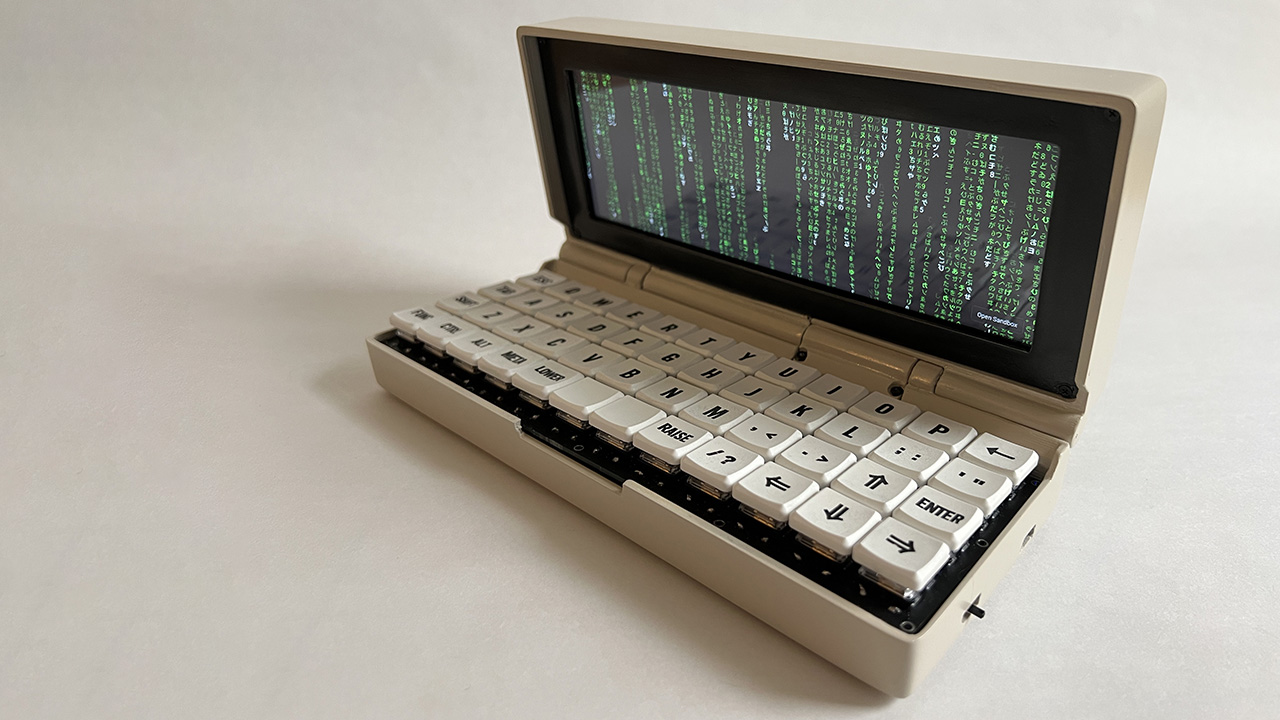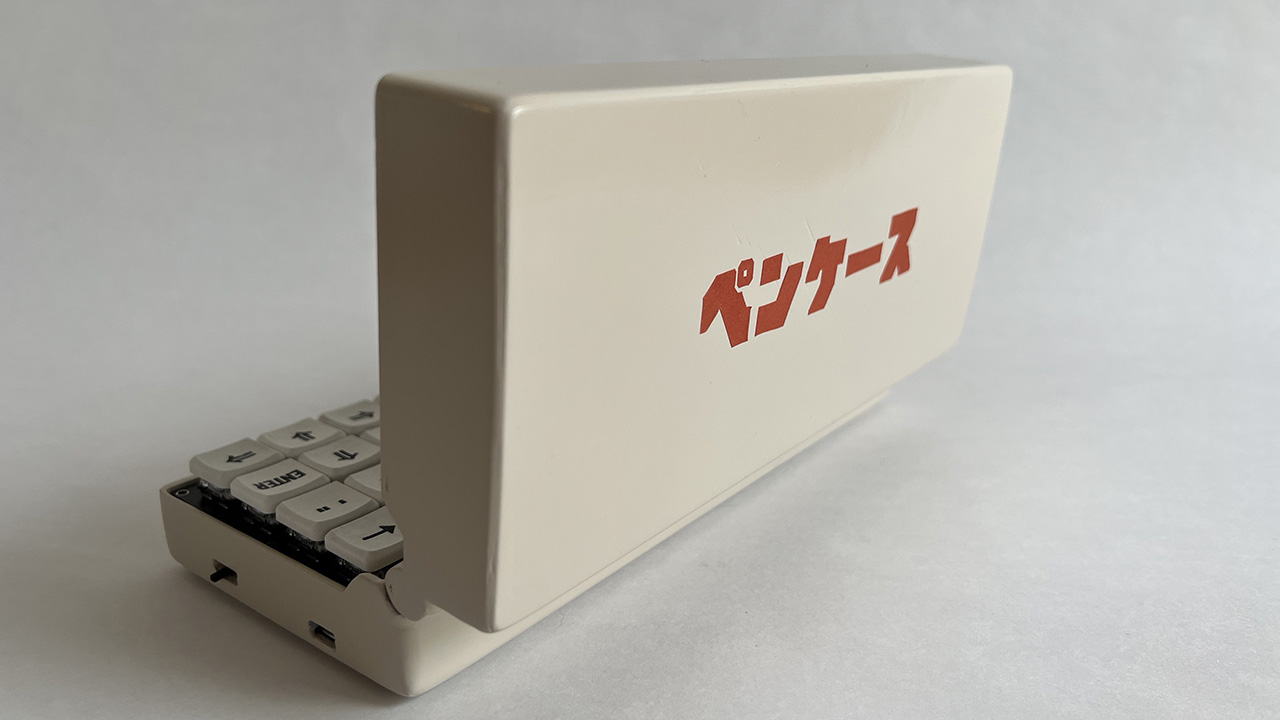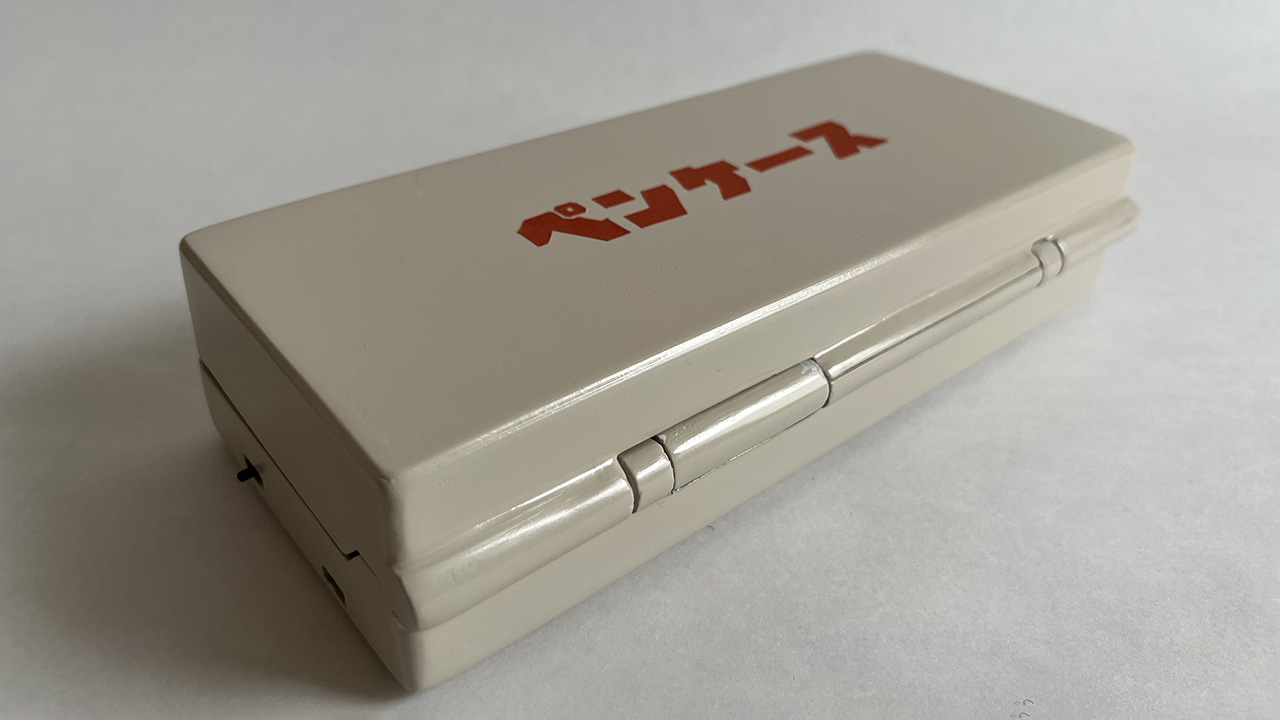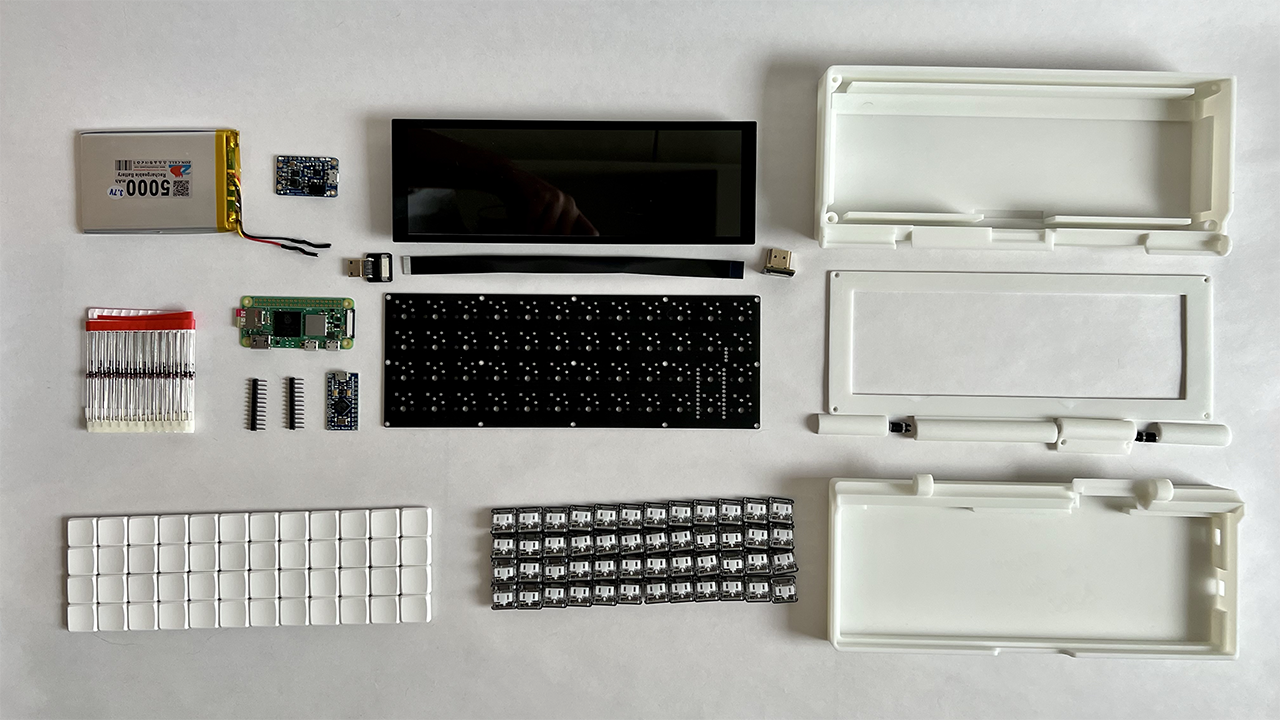Raspberry Pi Zero 2 W Powers Open-Source Handheld
The hinge of a Game Boy Advance SP, custom keys and a 3D printed case. But at the heart of this build is the mighty Raspberry Pi Zero 2 W
The Raspberry Pi Zero 2 W is a tiny powerhouse of a computer that punches far, far above its weight and cost. The latest Raspberry Pi is suitable for running some desktop applications, let down only by its 512MB of RAM. Keep within that limitation, however, and it’s a very capable basis for projects such as handheld computers, epitomised by this excellent retro-style sub-notebook cooked up by GitHub user Penk.




The Penkesu Computer is designed around its display, and re-purposes the hinges from a Game Boy Advance SP to help keep it compact. The display is a Waveshare 7.9 inch capacitive touchscreen, 400 x 1280 resolution, connected via a ribbon cable adapter to the Zero 2 W’s mini HDMI output.
The rest of the case is bespoke 3D printed, to better accommodate the 48-key low profile keyboard that connects via an Arduino Pro Micro that feeds its signals to the Pi’s second micro-USB port. The switches are Kailh Low Profile Choc V1 models, with Choc low-profile keycaps on top. As is common with 48-key keyboards, there are additional modifier keys that allow a large number of functions to be performed.
Inside, you’ll find a 3.7V Li-Po battery pack hooked up to an Adafruit Powerboost 1000C to act as a load-sharing charge controller and to feed power to the Pi, keyboard and screen. It’s the 1000C that exposes its micro-USB port to the outside of the case for charging, and not the Pi itself. Otherwise, if it weren’t for the keyboard, the case would be kind of empty, such are the tiny dimensions of the Pi Zero 2 W (65mm x 30mm).
Software isn’t mentioned, though in photos it can be seen running the desktop GUI of Raspberry Pi OS, and there's also a neat Matrix-style trickling green text background going on. “I feel the need to work on a new project, something I don't need to worry too much about commercial viability, and to remind myself why I started tinkering,” writes Penk, who is also behind the CutiePi tablet that runs on a Raspberry Pi Compute Module 4. “Since there are no immediate plans on selling kits or making Penkesu Computer mass producible, I'd like to publish all the designs and plans so there's enough information for anyone interested in making one.”
Penk's GitHub page is filled with details, including a complete bill of materials (BoM), and the design is open-source. All components are either off-the-shelf or 3D printable.
Get Tom's Hardware's best news and in-depth reviews, straight to your inbox.

Ian Evenden is a UK-based news writer for Tom’s Hardware US. He’ll write about anything, but stories about Raspberry Pi and DIY robots seem to find their way to him.